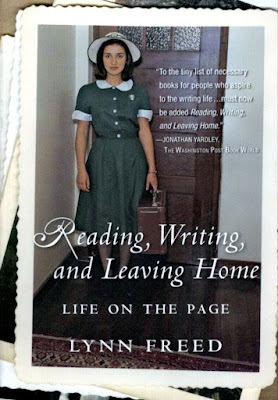Grading Writing
 For English teachers, this is our Vietnam: grading student writing. And for me, almost every assignment I make in my classes is a writing assignment. Oh, how I envy my math and science colleagues, shoving Scantron sheets through the machine in a haze of clicks, a whole set of twenty-two tests in a matter of minutes, finished and graded. A class of twenty-two students and their thousand-word essays takes me five hours on a good day with a large bottle of Excedrin.
For English teachers, this is our Vietnam: grading student writing. And for me, almost every assignment I make in my classes is a writing assignment. Oh, how I envy my math and science colleagues, shoving Scantron sheets through the machine in a haze of clicks, a whole set of twenty-two tests in a matter of minutes, finished and graded. A class of twenty-two students and their thousand-word essays takes me five hours on a good day with a large bottle of Excedrin.So it was with great pleasure that I stumbled upon an essay in Harper’s by Lynn Freed entitled, “Doing Time,” about her work as a college writing instructor. The essay is included in her memoir, Reading, Writing and Leaving Home: Life on the Page.
Freed takes on the daunting task of teaching writing in order to have the resources to spend part of the year writing full time and traveling, twin passions that she refuses to surrender. The plan backfires, to an extent. She finds that it is nearly impossible to write while teaching writing. “Every time I switched on the computer,” she complains, “I remembered the student stories I had to grade. And then, once they were read, it was as if all the vigour had dropped out of my own desire to write.”
Freed goes on to talk about returning those corrected drafts to the students, which is its own hell after the grading is done. “…I was in transports of exasperation myself,” she writes, “subject to the assaults and imprecations of students every time I handed back a set of graded stories.” I can validate this statement. Never has such a deathly air settled over a classroom as when I am handing back papers. The students know that they took less time to write the essay than I did to grade it. They are simply hoping against hope that by some miracle, they get an “A.”
Freed is clear and concise with her advice to writers and student-writers alike. “A writer,” she says, “must not only have a story to tell, but a story that he must tell…the writer must be in love with language, with the words themselves, the sound of the words on the page, the music they make in meaning. He must love them not so much in order to express the self as to discover a self, and, through it, his province, his territory, the territory of his story.”
Look, writing is hard work; it is a painstaking process, sentence by sentence, to create meaning and resonance. One cannot throw something down at midnight the night before the paper is due and expect brilliance. What’s more, people need to understand how the correction process works. I must read it several times over: once to become acquainted with it; a second time for logic and reasoning; a third time for grammar and mechanical problems. Then I must compose some clear, concise comments to guide the writer, hopefully, toward improvement. I must respond to the essay. Tell me how much individual response is in a multiple-choice, Scantron test. “Gosh, I love the way you fill in those bubbles!” Scantron scoring: quick turnaround. Grading writing: an entirely different skill set.
Students complain: “When are we going to get our tests back? How can we have another test when you haven’t graded the last one? How are we supposed to know what we did wrong?”
“You will get your tests back as soon as I have finished grading them. God knows, I do not want them on my desk any longer than necessary, mainly because I need room for the new stacks coming in tomorrow. Second, you need to be writing all the time, every day, as much as possible. If we wait until each assignment is returned, you will continue to be deficient. Writing is like working out: muscles develop through constant repetition and work, and so does writing. Third, you know how much time you spent on the paper, how confident you felt writing it, so that is a good indication how you did. In addition, look at your previous papers. I write the same thing over and over again, paper after paper. The mistakes rarely change.”
To the administrators who badger us about returning papers “in a timely manner,” you do not understand the process. I am peddling as fast as I can, given the uphill slope and the rusted bike with flat tires. Any time you want to step in, be my guest, and if you can find another sucker to read such pabulum until blindness and nausea kick in, I will gladly surrender my red pen (which I do not use anymore because a student complained that his paper was “covered in blood.” It was: mine! I accidentally slit my wrists while reading. Quite a large paper cut. So sorry.)
And to those classy students who actually take pen, or computer keyboard in hand, and try to write something that makes a statement, that has meaning, that says what they are thinking as clearly as they can make it, God bless you! May you get everything you want in life! As long as you try to write well, I will be your reader, and I will devour your ink-and-tear-stained pages that you slaved over, draft after draft, from here to forever.


Comments
Post a Comment